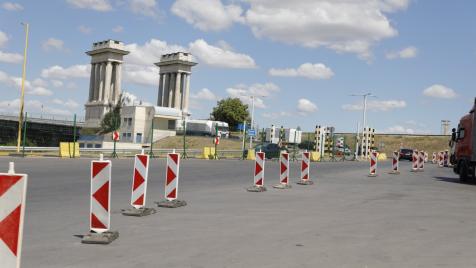The EC expects Bulgaria's economic growth to return to where it was 15 years ago
Brussels also warns that the deficit could exceed 3% if compensatory measures are not taken

© ECONOMIC.BG / Depositphotos
Higher growth in Bulgaria's gross domestic product (GDP), a slowdown in inflation, but also a budget deficit that will exceed the eurozone's 3% limit. This is what the European Commission (EC) predicts in its autumn macroeconomic forecast, published on Monday. According to the forecast, the Bulgarian economy will expand by 3% in 2025 and by 2.7% in 2026. For comparison, the spring expectations were for 2% and 2.1% growth, respectively.
Despite the upward revision of the forecast for the three years, economic growth will slump to 2.1% in 2027. This is a result that Bulgaria has not seen since the years following the financial crisis in the US and Europe. According to the chart below, a comparable year is 2011, followed by several more years of economic stagnation.
The European Commission explains that the slowdown in growth will be due to lower consumption and investment as a result of weaker public spending.
In 2026 – 2027, private consumption growth is projected to slow in line with the slowdown in wage growth and social transfers. Private investment is expected to continue to support growth as business confidence improves in the context of euro area accession," the EC said.
Deficit problems
What is interesting about the EC's forecasts is that it expects Bulgaria to meet the Maastricht criterion of a 3% deficit both this year and next. Analysts and experts, including former finance minister (2014-2020) Vladislav Goranov, have warned that with the current level of automatically rising expenditures, Bulgaria is heading for a deficit of over 3% of GDP.
However, the state budget has been drawn up with a 3% deficit, even though the revenues covering the unprecedented expenditures once again seem implausible.
Expenditures continue to grow faster than revenues despite efforts to improve tax collection, the return to standard VAT rates for bread and restaurant services, and the positive effect of wage growth in the private sector," the EC writes.
According to them, public investment will be higher this year than in 2024, reflecting the accelerated implementation of the Recovery and Resilience Plan and planned deliveries of defense equipment.
In 2026, pressure from public sector wage and pension costs is expected to moderate, and defense capital expenditure is expected to be lower, leading to a reduction in the deficit to 2.7%. This is not the case in 2027.
In 2027, against the backdrop of the second phase of planned defense equipment deliveries worth 1.2% of GDP and in the absence of compensatory measures, the deficit is expected to grow to 4.3%," they warn.
Food will remain expensive
As for inflation, it will slow down after 2026. The same was predicted in their spring macro forecast. However, food prices will remain high.
Higher food inflation is explained by both higher import prices and rising labor costs for local producers," the report says.
What will happen to wages
As many economists point out, double-digit wage growth is currently a major contributor to high private consumption. This is also confirmed by the EC, which points out that wages have grown "significantly in most sectors in 2024 and the first half of 2025 due to adjustments for high inflation in 2022 – 2023."
Wage growth is expected to slow down as inflationary pressures ease and the private sector seeks to remain competitive, while wage growth in the public sector is limited by fiscal constraints," the institution warns.
They predict that unemployment in Bulgaria will fall below 4% this year, but the labor market will remain tight.
Translated with DeepL.

 Simona Gotsova
Simona Gotsova 




